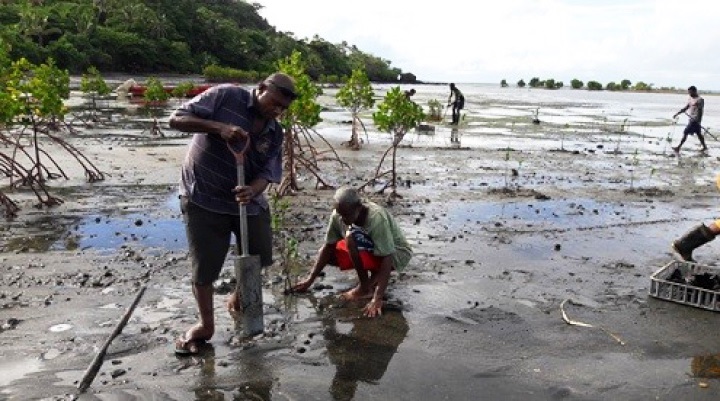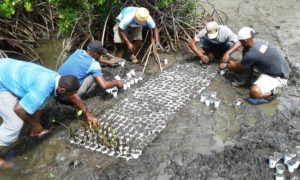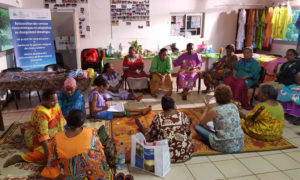From February 5-10, 2018, the University of the South Pacific’s (USP) Institute of Applied Sciences (IAS) team continued the implementation of the Restoration of Ecosystem Services and Adaptation to Climate Change (RESCCUE) project with various activities in Nakorotubu in the province of Ra in the Fiji Islands.
IAS is the RESCCUE Fiji Operator, along with Landcare Research New Zealand, Wildlife Conservation Society, Conservation International and Fiji Environment Law Association.
The activities included mangrove and coastal trees planting as well as mapping existing on-ground work, as part of the coastal community-based protected areas, mangrove protection and fisheries management initiatives in Ra.
A total of six villages were involved in this program, namely Navuniivi, Nabukadra, Nasau, Nayavuira, Naocobau and Namarai villages.
More than 1800 mangrove seedlings (mainly Rhizophora spp.) were planted in approximately 0.45 acre. In addition, a total of 1362 seedlings consisting of nine species of coastal trees were delivered to ten additional villages in Ra which comprised native, fruit and exotic species.
While the IAS team provided these seedlings, the communities who have been part of the RESCCUE Fiji work in Ra for the past three years will plant these as part of their commitment to the protection of their coastal areas.
Since Tropical Cyclone Winston in 2016, the IAS team has witnessed an invigoration of interest from the community members to reforest and restore areas that were destroyed by the severe tropical cyclone.
The aim of the RESCCUE project is to contribute to increasing the resilience of Pacific Island Countries and Territories through supporting their adaptation to climate change. The Pacific Islands Countries and Territories (PICTs) are widely regarded as among the most vulnerable to the effects of climate change, including those of ocean acidification.
A major issue for PICTs over the coming decades therefore lies in their capacity to adapt and increase their resilience to such changes. But as greenhouse gases emissions continue almost unabated, the range of adaptation options shrinks, and they become more uncertain and costly. In addition, biodiversity is now a jeopardized asset in the Pacific, which further threatens local livelihoods and the resilience of Pacific communities to climate change.
RESCCUE is funded by the French Development Agency (AFD) and the French Global Environment Facility (FFEM) and implemented through the Pacific Community (SPC).
The RESCCUE project operates both at the regional level and in one to two pilot sites in four countries and territories: Fiji, the Northern and Southern Provinces of New Caledonia, French Polynesia and Vanuatu.
There are two RESCCUE pilot sites in Fiji, namely Ra and Kadavu.
Featured photo of mangrove restoration courtesy of USP Institute of Applied Sciences.



